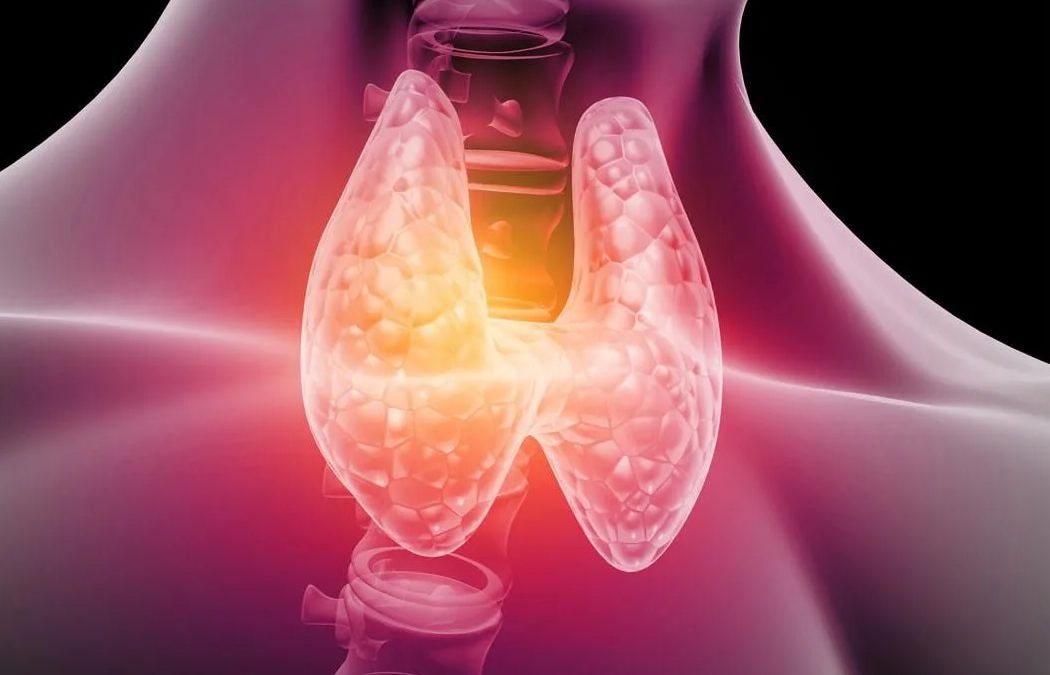Importance of Thyroid Health and the Role of Thyroid-Stimulating Hormone (TSH)
Our body is a symphony of interconnected systems, and among them, the thyroid plays a pivotal role in maintaining overall well-being. A healthy thyroid ensures a harmonious balance of hormones that regulate various bodily functions, from heart rate, blood pressure, metabolism to energy levels.
At the heart of thyroid health is Thyroid-Stimulating Hormone (TSH). It’s like the conductor orchestrating the thyroid’s performance. TSH is produced by the pituitary gland and acts as a messenger, directing the thyroid to release essential hormones. Understanding TSH is key to unraveling the intricacies of thyroid function and ensuring the body’s optimal functioning.
Explanation of Thyroid Function
The thyroid, a butterfly-shaped gland located in the neck, is a powerhouse of hormones. Its primary function is to produce thyroxine (T4) and triiodothyronine (T3), hormones that influence metabolism, growth, and energy levels. TSH plays a pivotal role in regulating the thyroid’s hormone production, maintaining this delicate equilibrium.
In the thyroid, T4 and T3 take center stage. T4, the precursor hormone, gets converted into the more active T3, influencing cellular processes throughout the body. The interplay between these hormones is finely tuned, and any disruption, indicated by TSH levels, can have profound effects on health.
Understanding the basics of thyroid function lays the foundation for comprehending the significance of testing Thyroid-Stimulating Hormone and interpreting its levels. In the following sections, we’ll delve deeper into the testing process, interpreting TSH levels, and the broader implications for your health and well-being.
Why Test for TSH?
TSH takes center stage as a vital indicator of thyroid function. TSH acts as a messenger, signalling the thyroid to produce hormones essential for metabolism and energy regulation. Monitoring TSH levels provides a window into the thyroid’s performance, allowing us to gauge its health and functionality.
Much like preventive healthcare measures, testing TSH proactively serves as an early warning system. Detecting deviations from the normal TSH range before symptoms manifest allows for timely intervention. Early identification of thyroid issues enables healthcare providers to implement strategies that can prevent further complications and promote optimal thyroid function.
The Testing Process
TSH testing is a straightforward process that involves a blood draw. A small sample of blood is collected from a finger prick. This sample is then analyzed to measure TSH levels. The procedure is quick and relatively painless, making it a routine and accessible diagnostic tool.
Several factors can impact TSH levels, emphasizing the need for a comprehensive understanding. Medications, stress, illness, and other hormonal imbalances can affect TSH measurements. Recognizing these influencers is crucial for accurate interpretation, ensuring that TSH levels are reflective of the thyroid’s intrinsic function.
Interpreting TSH Levels
Understanding what constitutes a normal TSH range is fundamental. Typically falling between 0.4 and 4.0 mg/L, this range indicates a healthy thyroid status. Deviations from this range prompt further investigation, providing valuable insights into potential thyroid dysfunction.
Elevated TSH levels may signify an underactive thyroid (hypothyroidism). Your pituitary gland produces more TSH to stimulate your thyroid to produce thyroid hormones. This condition can lead to symptoms such as fatigue, weight gain, and cold sensitivity. Addressing high TSH levels involves interventions to stimulate thyroid hormone production and restore balance.
Conversely, low TSH levels may indicate an overactive thyroid (hyperthyroidism). Symptoms can include weight loss, anxiety, and increased heart rate. Managing low TSH levels involves strategies to suppress excess thyroid hormone production and alleviate symptoms.
Thyroid Disorders and TSH
TSH levels serve as a compass guiding us through the vast landscape of thyroid disorders. Elevated TSH often accompanies hypothyroidism, where the thyroid underproduces hormones. Conversely, low TSH levels may point to hyperthyroidism, an overactive thyroid condition.
Thyroid disorders bring a spectrum of symptoms, from fatigue and weight gain in hypothyroidism to weight loss and anxiety in hyperthyroidism. Left untreated, these conditions can lead to more severe complications, affecting the heart, metabolism, and mental health. Recognizing symptoms early and addressing them through TSH-informed interventions can mitigate potential risks.
Empowering Patients, Educating Oneself about Thyroid Health
Knowledge is empowerment, especially when it comes to thyroid health. Understanding how TSH levels correlate with overall thyroid function enables individuals to actively participate in their well-being. Education helps patients make informed decisions about their health.
Regular TSH monitoring forms the cornerstone of proactive thyroid health. Periodic tests, especially for those with a family history of thyroid disorders, provide an ongoing assessment of thyroid function. Empowered patients also engage in lifestyle modifications and health measures that support thyroid well-being.
Partnering with Healthcare Practitioners
Healthcare professionals play a pivotal role in the journey of thyroid health. Endocrinologists and general practitioners are equipped to interpret TSH levels, diagnose thyroid disorders, and create tailored treatment plans. Their expertise ensures accurate assessment and targeted interventions.
A collaborative partnership between patients and healthcare providers enhances the effectiveness of thyroid management. Open communication, shared decision-making, and regular follow-ups create a synergy, ensuring that the treatment plan aligns with the patient’s lifestyle and health goals.
Lifestyle and Dietary Considerations
Beyond medical interventions, lifestyle and diet profoundly influence thyroid function. Stress management, regular exercise, and a nutrient-rich diet contribute to a thriving thyroid. Understanding these factors empowers individuals to make choices that support optimal thyroid health.
Simple lifestyle adjustments, such as incorporating iodine-rich foods and ensuring adequate selenium intake, can promote thyroid health. Balancing stress through mindfulness practices and maintaining a healthy weight also contribute to overall well-being.
Conclusion
We’ve navigated the importance of TSH testing, interpreting its levels, and understanding the intricate dance between TSH and common thyroid disorders. Recognizing symptoms, collaborating with healthcare professionals, and embracing lifestyle modifications are key takeaways.
The power to cultivate a thriving thyroid rests in your hands. Regular testing, informed decision-making, and a proactive approach to health empower you towards optimal thyroid well-being. Take charge, embrace knowledge, and embark on a journey to a healthier, more vibrant life.
Thyroid Function
Thyroid function is essential for optimal health. TSH is the best and often only test needed.
References
- Sachdeva, A. et al. Association between serum ferritin and thyroid hormone profile in hypothyroidism. Int J Med Sci Public Health 4, 863 (2015).
- Sheehan, M. T. Biochemical Testing of the Thyroid: TSH is the Best and, Oftentimes, Only Test Needed – A Review for Primary Care. Clin Med Res 14, 83–92 (2016).
- Chahardoli, R. et al. Can Supplementation with Vitamin D Modify Thyroid Autoantibodies (Anti-TPO Ab, Anti-Tg Ab) and Thyroid Profile (T3, T4, TSH) in Hashimoto’s Thyroiditis? A Double Blind, Randomized Clinical Trial. Horm Metab Res 51, 296–301 (2019).
- Modi, A. & Sahi, N. Effect of thyroid hormones on serum calcium and phosphorous. IJCBR 5, 570–573 (2020).
- Walter, K. N. et al. Elevated thyroid stimulating hormone is associated with elevated cortisol in healthy young men and women. Thyroid Res 5, 13 (2012).
- Wilson, S. A., Stem, L. A. & Bruehlman, R. D. Hypothyroidism: Diagnosis and Treatment. 103, (2021).
- Karar, T., Alhammad, R. I., Fattah, M., Alanazi, A. & Qureshi, S. Relation between glycosylated hemoglobin and lipid and thyroid hormone among patients with type 2 diabetes mellitus at King Abdulaziz Medical City, Riyadh. J Nat Sc Biol Med 6, 75 (2015).
- Shojaei Nik, M. H., Darabi, M., Ziaee, A. & Hajmanoochehri, F. Serum Phospholipase A2-IIA, hs-CRP, and Lipids in Women With Subclinical Hypothyroidism. Int J Endocrinol Metab 12, (2014).
- Chon, S. J., Heo, J. Y., Yun, B. H., Jung, Y. S. & Seo, S. K. Serum Thyroid Stimulating Hormone Levels Are Associated with the Presence of Coronary Atherosclerosis in Healthy Postmenopausal Women. J Menopausal Med 22, 146 (2016).
- Morris, M. S. The association between serum thyroid-stimulating hormone in its reference range and bone status in postmenopausal American women. Bone 40, 1128–1134 (2007).
- Xu, R., Huang, F., Zhang, S., Lv, Y. & Liu, Q. Thyroid function, body mass index, and metabolic risk markers in euthyroid adults: a cohort study. BMC Endocr Disord 19, 58 (2019).
- Malandrini, S., Trimboli, P., Guzzaloni, G., Virili, C. & Lucchini, B. What about TSH and Anti-Thyroid Antibodies in Patients with Autoimmune Thyroiditis and Celiac Disease Using a Gluten-Free Diet? A Systematic Review. Nutrients 14, 1681 (2022).


